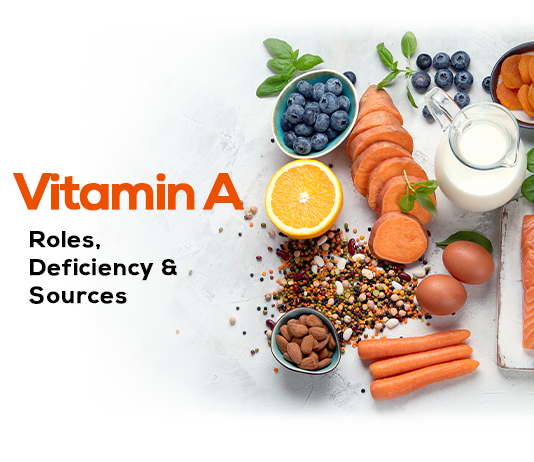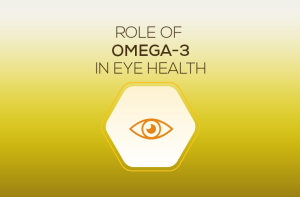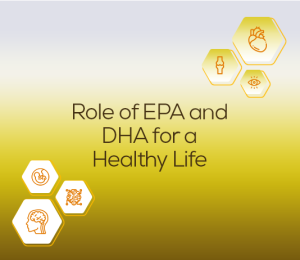Vitamin A is a fat-soluble Vitamin and a potent antioxidant. Our body stores Vitamin A in the liver for later use. Vitamin A is found in different forms in the body – Retinol is the active form of Vitamin A, retinyl ester is the storage form while beta carotene is the precursor form and is converted to Vitamin A in the body.
Depending on the food source, Vitamin A in our diet is also found in two forms:
- Retinol or ‘pre-formed’ Vitamin A is mostly found in animal-based products, like meat and dairy, that can be readily assimilated in our bodies.
- Carotenoids or Provitamin A is mostly found in fruits and vegetables and is the dietary precursor of retinol i.e. it is converted to retinol in our bodies after the food has been ingested.
Functions of Vitamin A
Vitamin A is important for maintaining good overall health and play key roles in vision health, immunity, reproduction, cell growth and combating free radicals. Functions of Vitamin A include:
1. Eye protection
Arguably, the biggest contribution of Vitamin A is in the maintenance of eye health. It forms a component of rhodopsin, the protein responsible for our in vision in low-light conditions and colour vision. Vitamin A also reduces eye infections by producing tears and keeping the cornea lubricated. Vitamin A also decreases the risk of vision loss from age related macular degeneration. Studies have shown that Vitamin A assists in the effective treatment of eye conditions such as superior limbic keratoconjunctivitis, a condition in which multiple regions of the eye are inflamed.
2. Anti-inflammatory properties
Vitamin A plays an important role in the development and maintenance of the immune system owing to its anti-inflammatory properties. As per multiple studies, Vitamin A is found to reduce morbidity and mortality [number of deaths] resulting from measles, malaria, and diarrhoea, among other infantile infectious diseases [1].
Vitamin A supports the immune function by supporting the growth and distribution of T and B cells, a type of white blood cells essential for fighting certain infections [2].
3. Maintenance of skin
Vitamin A helps with the growth of epithelial tissue, including the various tracts within the human body. It reduces dryness in skin by improving cell turnover, wherein dead skin cells are constantly being replaced by newer, younger cells. Many skin creams contain retinol or retinoic acid and have been clinically proven to reduce skin-related issues like acne, blemishes, and discoloration. Vitamin A also plays a key role in maintaining healthy mucous membranes that glaze one’s cheeks and gums. It prevents the mouth from drying out and promotes the production of saliva.
4. Maintain reproductive health
Vitamin A is crucial for the reproductive health of both men and women. It is responsible for spermatogenesis, or the growth of sperm, and the upkeep of the male genital tract. During pregnancy, Vitamin A is instrumental in the growth and development of the embryo and the formation of the placenta.
Studies have shown that deficiency of Vitamin A can increase the chances of infertility by reducing the formation of sperm, reducing the quality of ovum and influencing implantation in the womb.[3]
Effects of Vitamin A Deficiency
A long-term deficiency of this Vitamin can cause disturbances in metabolism, immunity, and eye health. The deficiency of Vitamin A can manifest in the following conditions –
1. Eye related conditions
The deficiency of Vitamin A can lead to multiple eye problems that fall under the umbrella-term ‘xerophthalmia’; a progressive eye condition characterized by the inability to produce tears. Due to low moisture, mucous membranes degenerate, leading to severe dryness in the cornea and conjunctiva. Conjunctivitis and corneal ulcers can also occur. Other conditions associated with the deficiency of Vitamin A include blurry vision, night blindness (compromised in low-light conditions) and keratomalacia (softening and clouding of cornea).
2. Skin related conditions
Vitamin A deficiency can cause eruption of patches of dry skin on the elbows, shoulders, and knees with prominent red follicles due to the overproduction of keratin. This is called follicular hyperkeratosis. General dryness, called xerosis, can lead to scales and wrinkles on the skin.
3. Impaired immunity
Mucous membranes are responsible for trapping small particles and foreign substances in the gastrointestinal, respiratory and genitourinary tracts. They prevent pathogens from entering our bodies, thereby forming an indispensable component of our immune system. Vitamin A deficiency dries out the mucous membranes, resulting in impaired immunity against microbes and parasites.
4. Compromised growth of foetus and children under 5y
Vitamin A is one of the most essential nutrients to be consumed during pregnancy for the development of the embryo. The importance of Vitamin A cements thereon, going into infancy, through childhood, as it supports rapid growth and tackles infections. A child deficient in Vitamin A is more prone to infantile infectious diseases, like measles, malaria, and night-blindness. Consequently, the growth of such a child can be stunted due to the onset of such illnesses. Vitamin A deficiency can cause a severe impact on pregnant women and children under the age of 5. Vitamin A deficiency has been found to be the foremost cause of preventable blindness in children.
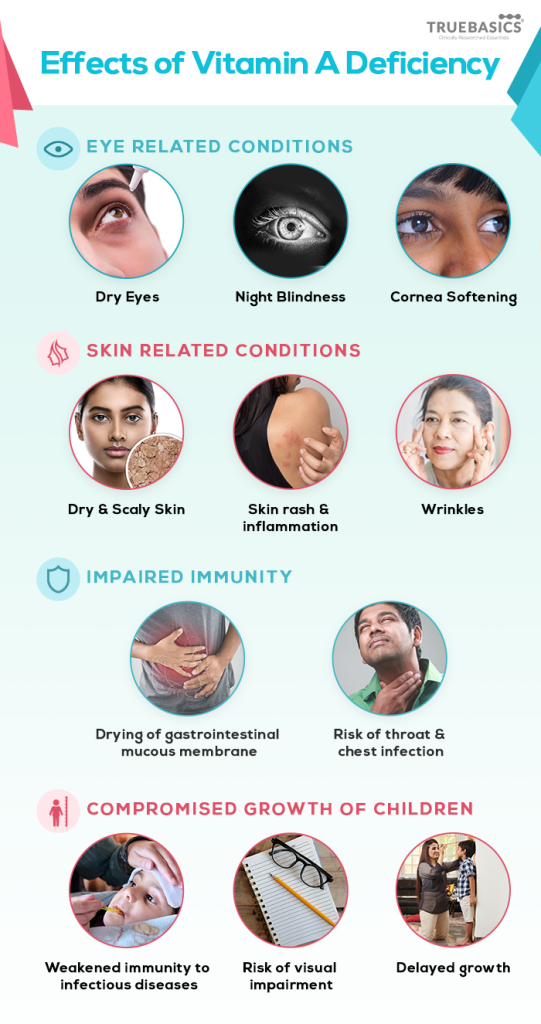
How to Combat Vitamin A Deficiency
Vitamin A deficiency can be countered using foods. India Council of Medical Research recommends a daily Vitamin A intake of 600 mcg for men and women with a higher requirement of 800 mcg and 950 mcg for pregnant and lactating women respectively.
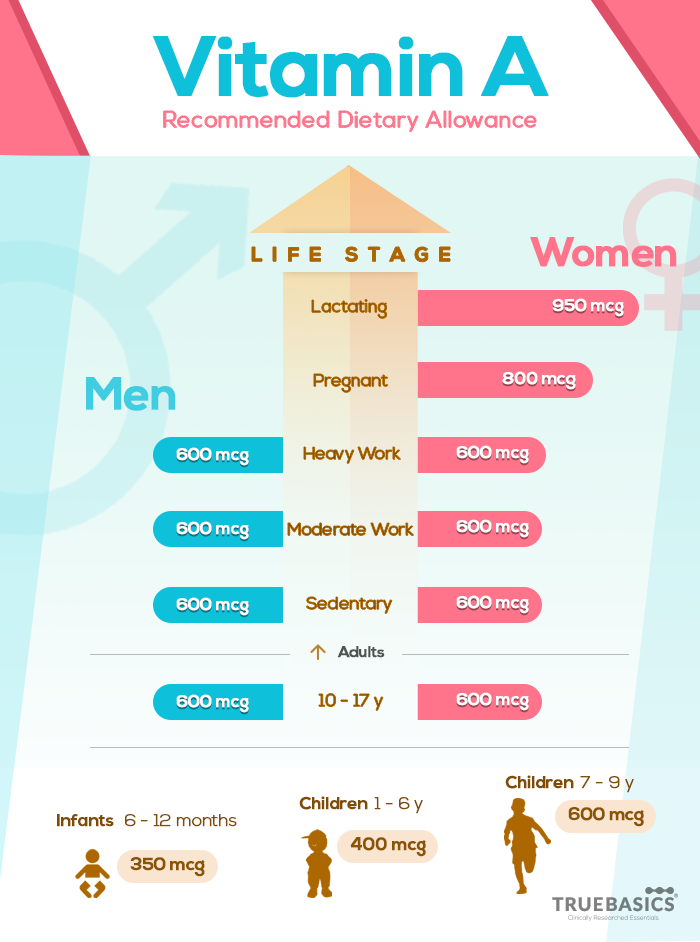
Below are the top food sources to help boost your Vitamin A levels:
- Liver
Be it turkey, lamb, fish or chicken – liver is an outstanding source of Vitamin A in Retinol form. The liver can pack as much as 300-500% of an adult male’s RDA.
Lamb’s liver provides 7391 mcg, duck liver provides 11984 mcg and chicken liver provides 3290 mcg Retinol per 100 g portion size - Ghee and butter
Ghee finds its origin in Indian cooking and has been known for its therapeutic properties for ages. Ghee is also known for its healing properties for skin owing to its antioxidant and antimicrobial activity. Ghee can provide 900 mcg of Retinal per 100 g. The Vitamin A content of ghee varies with brand and quality.
Cheddar cheese provides 341 mcg while butter provides 671 mcg of Retinol per 100 g portion size. - Carrot
As if we need any more reasons to eat gaajar ka halwa, 100 g of carrots contain 10605 mcg of beta-carotene. This beta carotene is then converted into the active form ‘Retinol’ in the body. - Sweet potato
Sweet potato is an excellent source of Vitamin A with 100 g providing 8511 mcg of beta carotene. - Green vegetables
Kale, turnip, spinach and broccoli leaves – all pack punches with regards to taste and Vitamin A composition. 100 g of Kale provides 9225 mcg of beta carotene, followed by turnip with 6952 mcg, spinach with 1688 mcg and broccoli with 361 mcg of beta carotene per 100 g portion size.
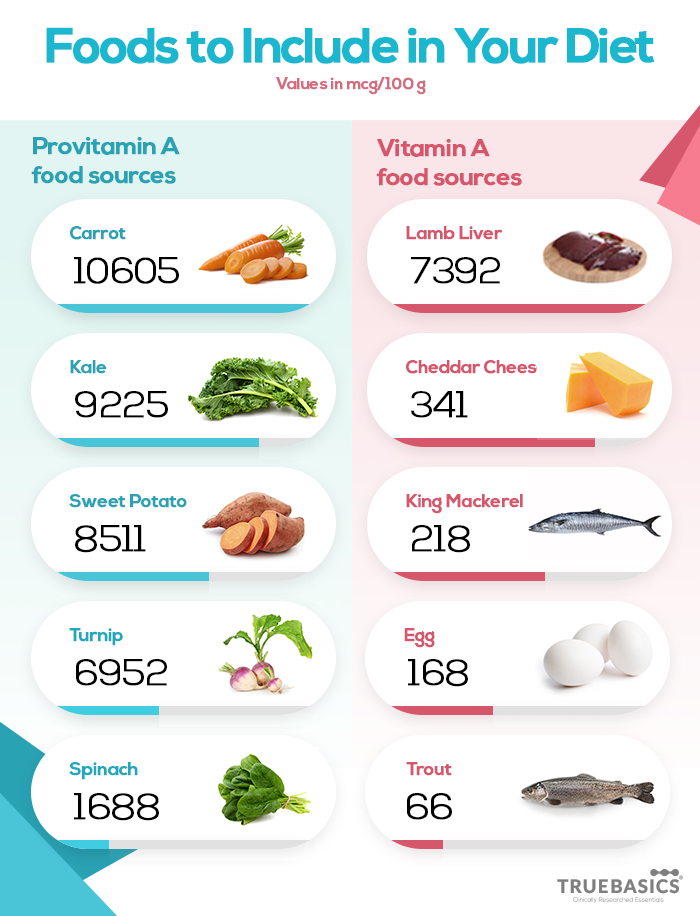
In Conclusion…
Vitamin A plays an instrumental role in our vision, eye health and immunity. A deficiency of Vitamin A can cause eye related conditions such as blurry vision, dryness, and vision impairment. The deficiency of Vitamin A is essentially more prominent for pregnant women and children under the age of 5.
It is important for us to address Vitamin A deficiency and include Vitamin A rich food sources in our daily diet. We can get Vitamin A in the form of retinol from animal sources or beta-carotene from dietary sources. All it takes is Vitamin A rich nutrition, awareness and a resolve to build a deficient free India.
#ShareIfYouCare #RepublicofDeficiency
Sources:
[1] Huang, Zhiyi & Liu, Yu & Qi, Guangying & Brand, David & Zheng, Song. (2018). Role of Vitamin A in the Immune System. Journal of Clinical Medicine. 7. 258. 10.3390/jcm7090258.
[2] https://www.ncbi.nlm.nih.gov/pmc/articles/PMC6162863/
[3] https://www.ncbi.nlm.nih.gov/pmc/articles/PMC3257687/

